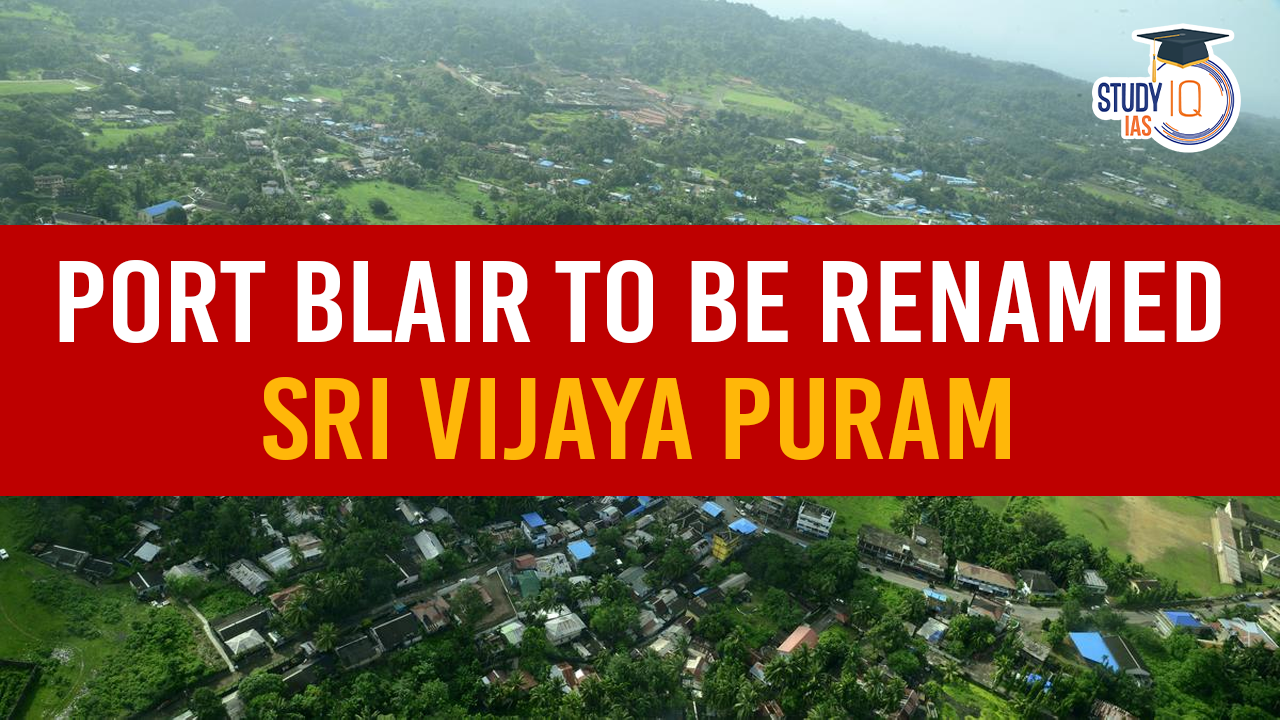Table of Contents
In a recent announcement, the Union Home Minister revealed that Port Blair, the capital of the Andaman and Nicobar Islands, will soon be renamed Sri Vijaya Puram. This renaming pays homage to the region’s ancient historical significance, especially its connection to the Chola dynasty and its military strategies. The renaming marks an important step in reclaiming India’s rich past and celebrating its cultural heritage. In this article, we delve into the historical context of Port Blair, its significance as a penal colony, and its deep-rooted connection to the Chola Empire.
History of Port Blair
Port Blair, a city steeped in history, was named after Archibald Blair, a naval surveyor and lieutenant in the Bombay Marine. Blair was the first officer to conduct a comprehensive survey of the Andaman Islands in the late 18th century, and his explorations laid the foundation for British involvement in the region.
The renaming of Port Blair as Sri Vijaya Puram draws attention to its historical importance, not just under British colonial rule but also in the context of India’s ancient maritime history.
Port Blair: A Penal Colony During British Rule
The Andaman Islands were colonized by the East India Company (EIC) in the late 18th century. Their primary motive was to curb the activities of Malay pirates who frequented the waters around the islands. It was during this time that Port Blair gained infamy as a penal colony.
- Penal Colony for Convicts
The British transported convicts to Port Blair, where they were forced to engage in unpaid labor. This practice turned the islands into a notorious penal colony where prisoners were subjected to harsh living conditions. - Cellular Jail (Kala Pani)
In 1906, the British constructed the infamous Cellular Jail in Port Blair, commonly known as Kala Pani (black water). The jail was specifically designed to imprison Indian freedom fighters. Its isolated location and inhumane conditions made it one of the most feared detention centers in British India. Several key figures in the Indian independence movement, including Batukeshwar Dutt and Veer Savarkar, were imprisoned here. - First Unfurling of Tiranga
An iconic moment in Indian history took place in Port Blair during World War II when Subhash Chandra Bose, under the Azad Hind Government, unfurled the Tiranga (Indian tricolor flag) for the first time on Indian soil in 1943. This event marked a significant milestone in the freedom struggle and reinforced the importance of Andaman and Nicobar in the larger narrative of India’s fight for independence.
Chola Connection to Andaman and Nicobar Islands
The historical ties between Andaman and Nicobar Islands and the Chola Empire further validate the renaming of Port Blair as Sri Vijaya Puram.
- Rajendra Chola I’s Strategic Naval Base
The islands played a crucial role during the reign of Rajendra Chola I, one of the most powerful rulers of the Chola Dynasty in the 11th century. Rajendra I is known for his impressive naval expeditions, and the Andaman Islands served as a key strategic outpost for his navy. The Cholas launched several successful military campaigns from these islands, including their famous attacks on the Srivijaya Empire (modern-day Indonesia). - Thanjavur Inscription
According to a 1050 CE inscription found in the famous Thanjavur Temple, the Cholas referred to the islands as Ma-Nakkavaram, which translates to “great open/naked land.” This name is believed to have evolved into Nicobar, one of the two island groups in the Andaman and Nicobar archipelago. - Legacy of the Cholas in Southeast Asia
The Cholas left a lasting impact on Southeast Asia, particularly in terms of trade and military dominance. Their naval campaigns in the region established them as a formidable power, and their use of the Andaman Islands as a base of operations highlights the strategic importance of the archipelago even in ancient times.
Why Sri Vijaya Puram?
The proposed name Sri Vijaya Puram evokes a connection to the Srivijaya Empire, which flourished in Southeast Asia between the 7th and 13th centuries. The renaming of Port Blair can be seen as a recognition of India’s historical and cultural links with Southeast Asia, especially during the reign of the Chola Dynasty.
The Srivijaya Empire was a dominant maritime and commercial kingdom based in Indonesia. The Cholas, under Rajendra I, clashed with the Srivijaya Empire, and their battles shaped the course of South and Southeast Asian history.
Conclusion
The decision to rename Port Blair to Sri Vijaya Puram is a nod to the region’s historical importance, both in the context of British colonial rule and India’s ancient maritime prowess under the Chola Empire. It symbolizes the reclamation of India’s historical narrative and strengthens the cultural ties between India and Southeast Asia. As the capital of the Andaman and Nicobar Islands, Sri Vijaya Puram will now stand as a reminder of India’s rich and diverse past, connecting its colonial legacy to its ancient history.
The Andaman and Nicobar Islands hold an invaluable position in India’s history, not only as the site of British-era colonial prisons but also as a strategic base for ancient Indian empires like the Cholas. The renaming reflects a broader effort to recognize and honor the deeper historical roots of India’s geographical and cultural landscape.


 Securities Markets Code Bill 2025: Towar...
Securities Markets Code Bill 2025: Towar...
 Weakly Interacting Massive Particles (WI...
Weakly Interacting Massive Particles (WI...
 India–Oman Trade Deal: CEPA Signed to ...
India–Oman Trade Deal: CEPA Signed to ...

























